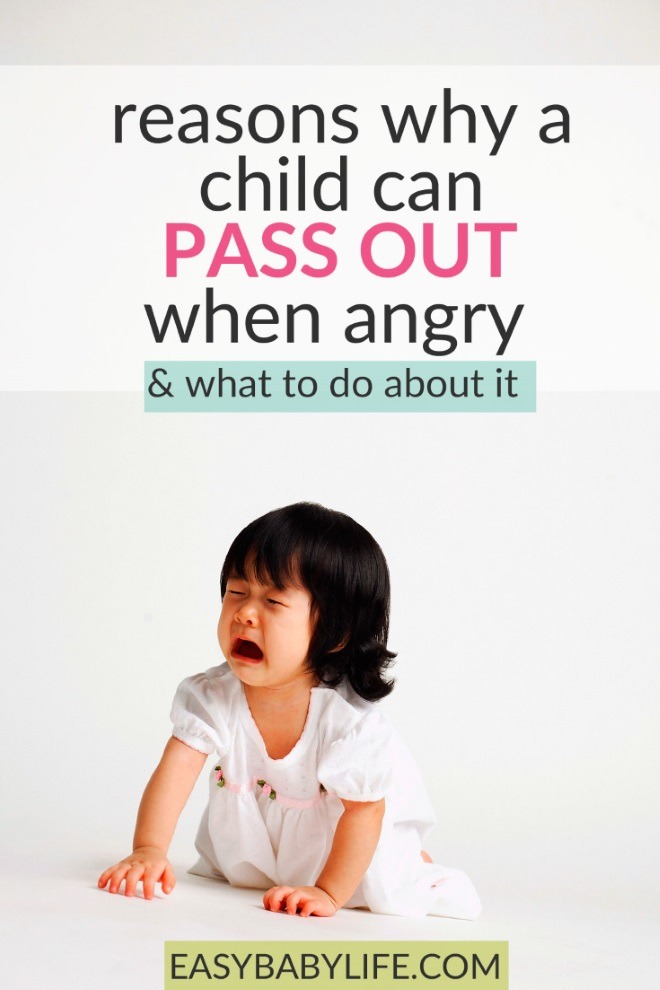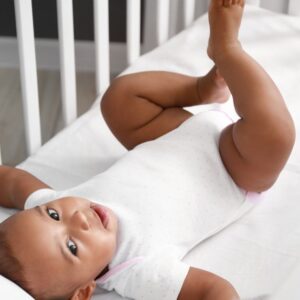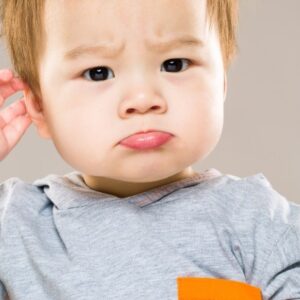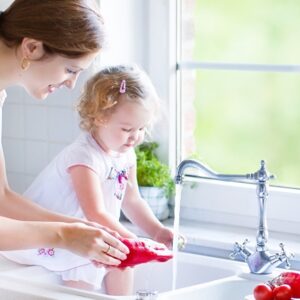 Pin
Pin
Parent’s Question:
What could cause a child to pass out when angry? Is that even possible?
My 1-year-old gets so angry she starts to hyperventilate, her eyes roll back of her head and she passes out. Doctors say it is just anger, is there another reason? It is very upsetting to see her pass out and I am afraid that she is seriously ill.
Quenten
(prince george bc canada)
Hi Quenten,
Firstly congratulations on having such a dynamic little girl! I know it is really hard as a parent to cope with a child that is so determined, and it may not feel like it, but having a child that is so strong is a great start for her. It will be a challenge for you, but as much as you can, stay calm and draw on all the patience you possess.
Some children come into this world absolutely determined to get the most out of it, and until she learns strategies that are less alarming for you, you are going to have to focus more on how you cope with it.
In this post, I’ll first talk about what is likely happening with your daughter and then about what you can do to prevent it.
Reasons Why A Baby May Pass Out When Angry
Anxiety, fear, pain, and intense emotional stress are very strong feelings and may cause a brief loss of consciousness and posture in children.
When a baby becomes intensely anxious and breathes too quickly, she may faint from taking too much oxygen and getting rid of too much carbon dioxide too quickly.
Temper tantrums do not themselves lead to loss of consciousness unless they are a trigger for a breath-holding spell or Expiratory Apnea, as it is sometimes called.
Breath-holding spells are not dangerous but scary. These spells usually result from anger, fear, pain or frustration and are reflexes; they are not caused by children on purpose.
Breath-holding spells are common among 1 to 3 years old children and are usually not serious. They do not cause permanent damage of affect your child’s health. Breath-holding spells usually disappear when children get older.
So, your daughter might either simply be fainting due to too much oxygen or due to a breath-holding spell. Neither are dangerous. (Although they can make her fall, of course.)
What to Do When your Child Passes Out from Anger
If your baby has one of these episodes, try to sit calmly and breathe slowly yourself, it will help to calm you, and she may pick up on it. To protect your baby during a spell, lay your child on the floor. After the spell, comfort your child.
Remember that what is happening to your child is completely out of their control and they are likely to be completely overwhelmed and scared. You set the tone by being calm, loving and protecting them is the best way to help! It doesn’t matter how “bad” their behavior has been, this is not a time to focus on that.
How to Act to Prevent That Baby Passes Out From Anger
Firstly, think about the situations that are likely to cause her to get really angry. Sometimes we expect too much of our little ones and you may be trying to restrict her unnecessarily. If you see a pattern, then ahead of time see if you can head it off with distraction rather than head-on confrontation, or you make the choice if this is going to be something you battle over or let it slide. I am not suggesting you give in to her as that will reinforce the tantrums – you need to make decisions before she loses control.
As her language develops, she will start to learn how to express herself verbally rather than getting so frustrated.
It is not uncommon for children at this age to hyperventilate with anger and frustration, so in the meantime, hang in there and keep your cool, or you will be inflaming the situation. Best of luck!
I hope this helps,
Paula
(Answer approved by our Medical Reference Team)
More About Babies That Pass Out

Paula Dennholt founded Easy Baby Life in 2006 and has been a passionate parenting and pregnancy writer since then. Her parenting approach and writing are based on studies in cognitive-behavioral models and therapy for children and her experience as a mother and stepmother. Life as a parent has convinced her of how crucial it is to put relationships before rules. She strongly believes in positive parenting and a science-based approach.
Paula cooperates with a team of pediatricians who assist in reviewing and writing articles.






